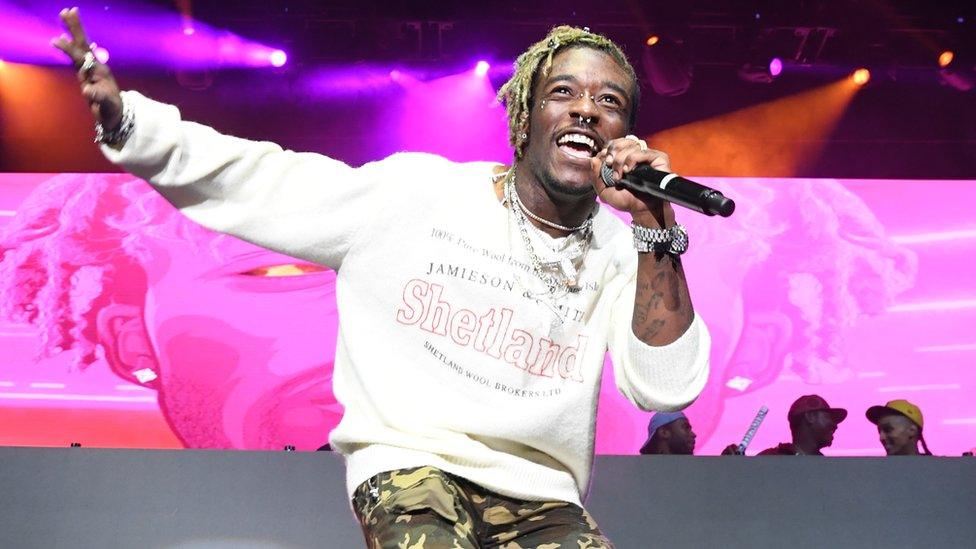Shetland fishing apprentices have 'high hopes' for Brexit
- Published
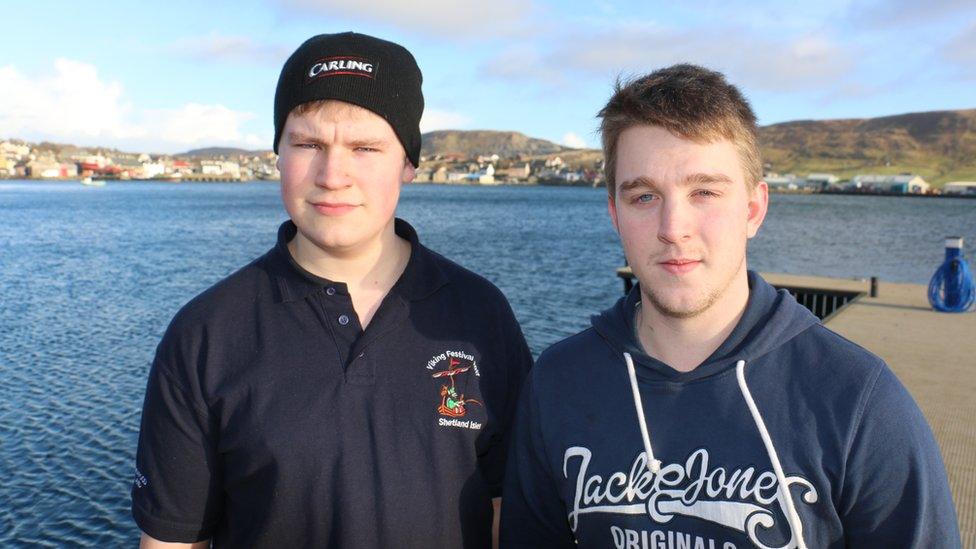
John-Arthur (l) and Lee
Fishing apprentices John-Arthur Robertson and Lee Odie are hopeful their industry can benefit from Brexit.
They've spent the day with Newsbeat, showing us around the North Atlantic Fisheries College in Scalloway, Shetland, where they study.
Both of them say the "Brexit opportunity" for their industry is something they discuss with friends and have "high hopes" it'll be great.
They believe that UK waters are overfished by other countries.
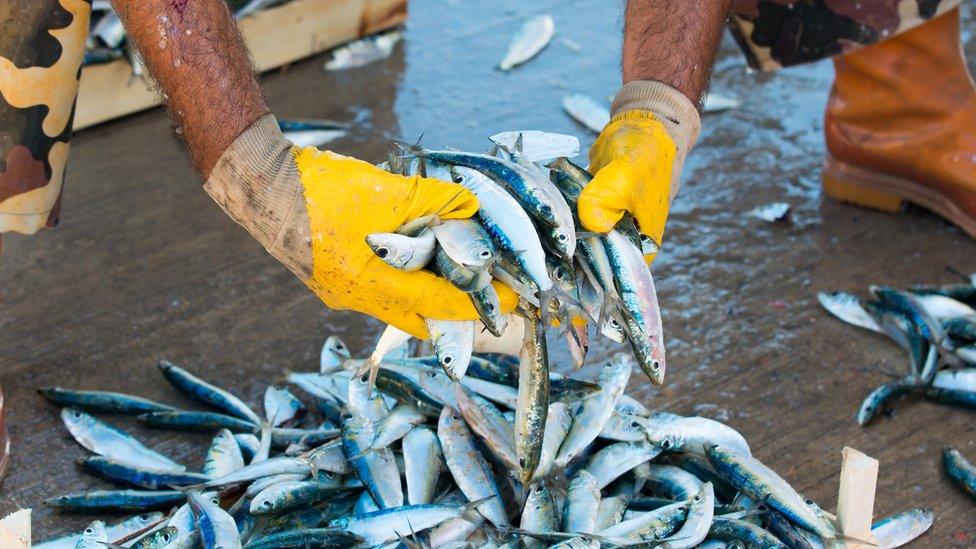
Fishing makes up a third of Shetland's economy, according to the Shetland fisherman's association
"We need to get the Danish, Dutch, French, Spanish boats that are fishing on the Shetland grounds outside 200 miles," John-Arthur, 17, tells Newsbeat.
European boats currently fish between 12 and 200 miles from UK coasts, and it's the European Union that sets quotas for how many fish each nation can catch.
UK fishermen catch about 100,000 tonnes in EU waters, but EU countries catch 750,000 tonnes in UK waters.
After Brexit, John-Arthur hopes "we'll get our own waters back".
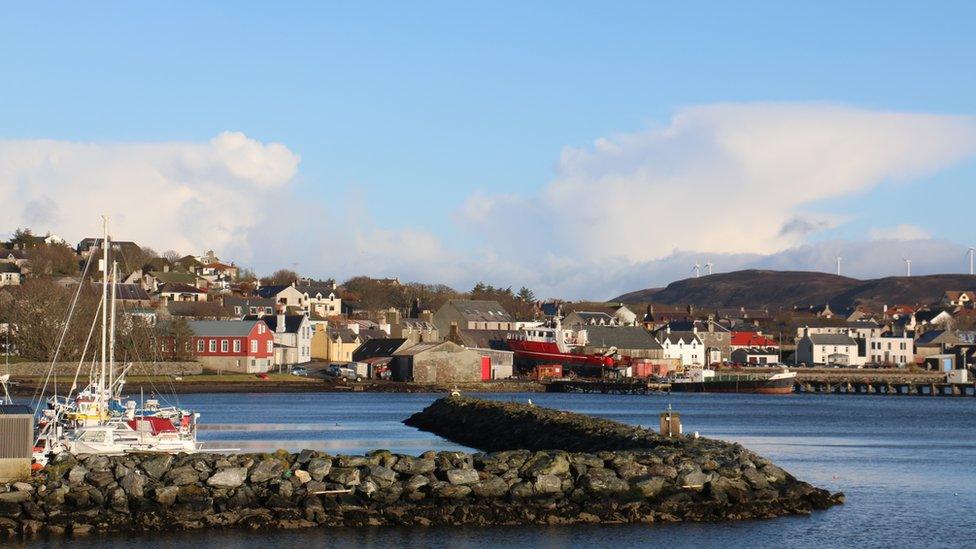
Scalloway Harbour in Shetland
A quarter of all British fish are caught around Shetland, according to the Shetland Fisherman's Association, and the future of the industry is really important to the islands.
But John-Arthur is worried the UK government could use British waters as a bargaining chip in the Brexit negotiations.
"There were rumours we'll be traded away for something else, and that would mean all the foreign boats could come within three miles of the land.
"That would destroy the fishing grounds," he says.
Lee, 21, is more diplomatic.
"Brexit is a sticky situation for everybody involved but we've high hopes it goes the way we want it."
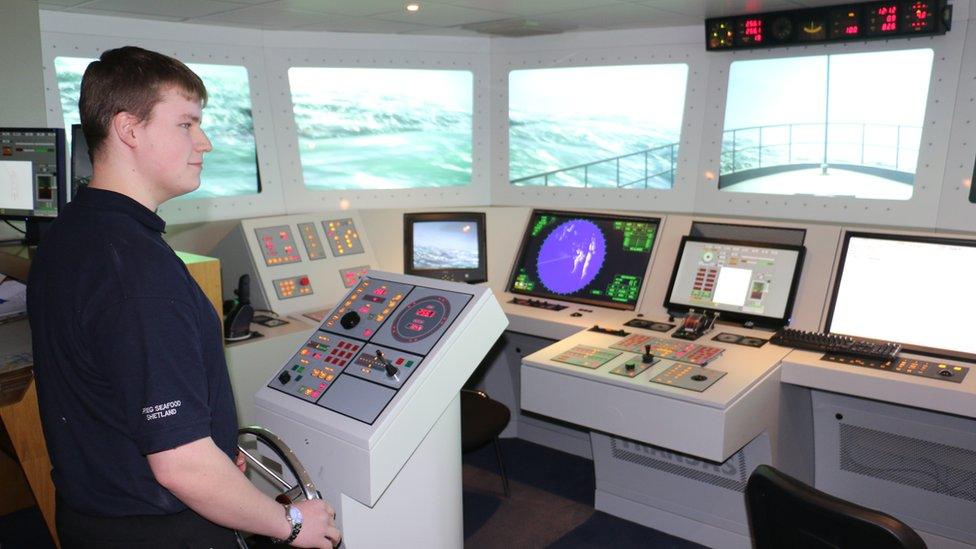
John-Arthur using a simulator
George Eustice, Fisheries Minister for the UK government, tells Newsbeat he "understands the apprehension".
"I am very clear about what we are moving to after Brexit - the position in international law is that we will take responsibility for waters up to 200 miles.
"We know what other [non-EU] countries like the Faroe Islands, Iceland and Norway do, and we want to do the same."
"We want three things: control of our own waters, management of that resource and a fairer share for our fishermen," George says.
Simon Collins, from the Shetland Fisherman's Association, told Newsbeat his only concern is that the British government can hold out against EU pressures when it comes to getting the best deal for fishing.
But until they know more, the fishing apprentices are just enjoying learning. "You get used to being sea-sick," laughs Lee.
Listen to Newsbeat live at 12:45 and 17:45 every weekday on BBC Radio 1 and 1Xtra - if you miss us you can listen back here
- Published29 January 2018
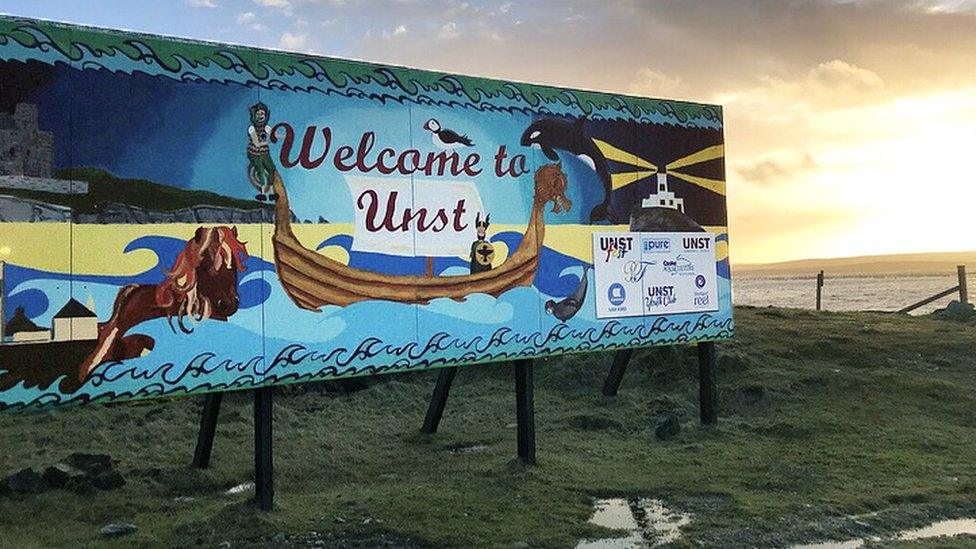
- Published30 January 2018
